It's Super Bowl Sunday. What better day for a little poetry rant?
 I went to see Woody Guthrie's American Song two times within 24 hours, in part because I had been in a somewhat saddened-and-smoldering mood for too long, something like the one described below by poet Campbell McGrath. This was published in The New Yorker on January 11, 2010. It reminds me of my dad describing the Mall of America (one of his least favorite places), or the feeling of appalled-and-dulled alarm that comes when flipping through (at least) Fifty-Seven-Channels-and-Nothing's-On. It's not nothing: nothing would be a relief. Instead, we are material witnesses (or, to put it anthropologically, "participant-observers") of the chaos of late high capitalism, as described in the frenzied poem below.
I went to see Woody Guthrie's American Song two times within 24 hours, in part because I had been in a somewhat saddened-and-smoldering mood for too long, something like the one described below by poet Campbell McGrath. This was published in The New Yorker on January 11, 2010. It reminds me of my dad describing the Mall of America (one of his least favorite places), or the feeling of appalled-and-dulled alarm that comes when flipping through (at least) Fifty-Seven-Channels-and-Nothing's-On. It's not nothing: nothing would be a relief. Instead, we are material witnesses (or, to put it anthropologically, "participant-observers") of the chaos of late high capitalism, as described in the frenzied poem below.
Woody Guthrie's American Song, like Garrison Keillor's A Prairie Home Companion the night before, restored my soul to a temporary sense of peace, not least because both involved real people engaged in creating something, paying attention to something, organizing and coordinating their efforts in order to make a dent in the direction of giving the world something immediate, meaningful, valuable, and deliberate. It just felt so much better than randomly sitting in front of the tv (for example), the way it feels to me to shop at the farmers' market or the food co-op, instead of at a place like Wal-Mart. (I do realize that I am setting up a good/bad opposition here; can't be helped, I'm afraid.)
I see a mythological subtext to this poem. Persephone, the daughter of Demeter (Earth-mother who presided over grains, fertility, the harvest and the seasons in classical Greek mythology) was spirited away to the Underworld (like Alice?), where she was tricked by Hades into eating pomegranate seeds. It was a rule of the Fates that whoever consumed food or drink in the Underworld was doomed to spend eternity there. This sounds like a trip to hell, too. Here is McGrath with a plastic orange rather than a pomegranate.
Shopping for Pomegranates at Wal-Mart on New Year’s Day
Beneath a ten-foot-tall apparition of Frosty the Snowmanwith his corncob pipe and jovial, over-eager, button-black eyes,
holding, in my palm, the leathery, wine-colored purse
of a pomegranate, I realize, yet again, that America is a country
about which I understand everything and nothing at all,
that this is life, this ungovernable air
in which the trees rearrange their branches, season after season,
never certain which configuration will bear the optimal yield
of sunlight and water, the enabling balm of nutrients,
that so, too, do Wal-Mart’s ferocious sales managers
relentlessly analyze their end-cap placement, product mix,
and shopper demographics, that this is the culture
in all its earnestness and absurdity, that it never rests,
that each day is an eternity and every night is New Year’s Eve,
a cavalcade of B-list has-beens entirely unknown to me,
needy comedians and country singers in handsome Stetsons,
sitcom stars of every social trope and ethnic denomination,
pugilists and oligarchs, femmes fatales and anointed virgins
throat-slit in offering to the cannibal throng of Times Square.
Who are these people? I grow old. I lie unsleeping
as confetti falls, ash-girdled, robed in sweat and melancholy,
click-shifting from QVC to reality TV, strings of commercials
for breath freshener, debt reconsolidation, a new car
lacking any whisper of style or grace, like a final fetid gasp
from the lips of a dying Henry Ford, potato-faced actors
impersonating real people with real opinions
offered forth with idiot grins in the yellow, herniated studio light,
actual human beings, actual souls bought too cheaply.
That it never ends, O Lord, that it never ends!
That it is relentless, remorseless, and it is on right now.
That one sees it and sees it but sometimes it sees you, too,
cowering in a corner, transfixed by the crawler for the storm alert,
home videos of faces left dazed by the twister, the car bomb,
the war always beginning or already begun, always
the special report, the inside scoop, the hidden camera
revealing the mechanical lives of the sad, inarticulate people
we have come to know as “celebrities.”
Who assigns such value, who chose these craven avatars
if not the miraculous hand of the marketplace,
whose torn cuticles and gaudily painted fingernails resemble nothing
so much as our own? Where does the oracle reveal our truths
more vividly than upon that pixillated spirit glass
unless it is here, in this tabernacle of homely merchandise,
a Copernican model of a money-driven universe
revolving around its golden omphalos, each of us summed
and subtotalled, integers in an equation of need and consumption,
desire and consummation, because Hollywood had it right all along,
the years are a montage of calendar pages and autumn leaves,
sheet music for a nostalgic symphony of which our lives comprise
but single trumpet blasts, single notes in the hullabaloo,
or even less—we are but motes of dust in that atmosphere
shaken by the vibrations of time’s imperious crescendo.
That it never ends, O Lord. That it goes on,
without pause or cessation, without pity or remorse.
That we have willed it into existence, dreamed it into being.
That it is our divine monster, our factotum, our scourge.
That I can imagine nothing more beautiful
than to propitiate such a god upon the seeds of my own heart.
holding, in my palm, the leathery, wine-colored purse
of a pomegranate, I realize, yet again, that America is a country
about which I understand everything and nothing at all,
that this is life, this ungovernable air
in which the trees rearrange their branches, season after season,
never certain which configuration will bear the optimal yield
of sunlight and water, the enabling balm of nutrients,
that so, too, do Wal-Mart’s ferocious sales managers
relentlessly analyze their end-cap placement, product mix,
and shopper demographics, that this is the culture
in all its earnestness and absurdity, that it never rests,
that each day is an eternity and every night is New Year’s Eve,
a cavalcade of B-list has-beens entirely unknown to me,
needy comedians and country singers in handsome Stetsons,
sitcom stars of every social trope and ethnic denomination,
pugilists and oligarchs, femmes fatales and anointed virgins
throat-slit in offering to the cannibal throng of Times Square.
Who are these people? I grow old. I lie unsleeping
as confetti falls, ash-girdled, robed in sweat and melancholy,
click-shifting from QVC to reality TV, strings of commercials
for breath freshener, debt reconsolidation, a new car
lacking any whisper of style or grace, like a final fetid gasp
from the lips of a dying Henry Ford, potato-faced actors
impersonating real people with real opinions
offered forth with idiot grins in the yellow, herniated studio light,
actual human beings, actual souls bought too cheaply.
That it never ends, O Lord, that it never ends!
That it is relentless, remorseless, and it is on right now.
That one sees it and sees it but sometimes it sees you, too,
cowering in a corner, transfixed by the crawler for the storm alert,
home videos of faces left dazed by the twister, the car bomb,
the war always beginning or already begun, always
the special report, the inside scoop, the hidden camera
revealing the mechanical lives of the sad, inarticulate people
we have come to know as “celebrities.”
Who assigns such value, who chose these craven avatars
if not the miraculous hand of the marketplace,
whose torn cuticles and gaudily painted fingernails resemble nothing
so much as our own? Where does the oracle reveal our truths
more vividly than upon that pixillated spirit glass
unless it is here, in this tabernacle of homely merchandise,
a Copernican model of a money-driven universe
revolving around its golden omphalos, each of us summed
and subtotalled, integers in an equation of need and consumption,
desire and consummation, because Hollywood had it right all along,
the years are a montage of calendar pages and autumn leaves,
sheet music for a nostalgic symphony of which our lives comprise
but single trumpet blasts, single notes in the hullabaloo,
or even less—we are but motes of dust in that atmosphere
shaken by the vibrations of time’s imperious crescendo.
That it never ends, O Lord. That it goes on,
without pause or cessation, without pity or remorse.
That we have willed it into existence, dreamed it into being.
That it is our divine monster, our factotum, our scourge.
That I can imagine nothing more beautiful
than to propitiate such a god upon the seeds of my own heart.
























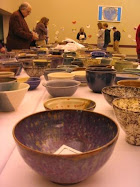







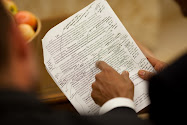
























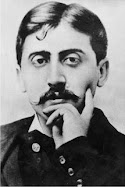






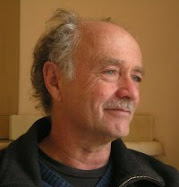











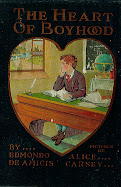
















































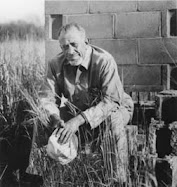









.jpg)














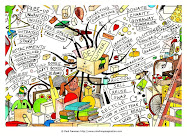






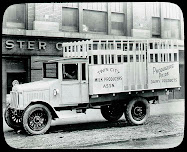





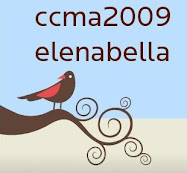














































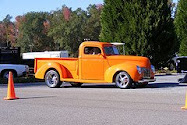














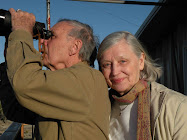
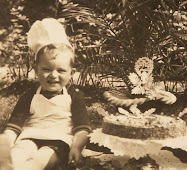














































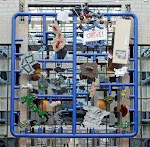.jpg)








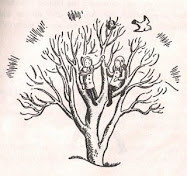







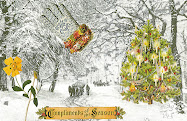



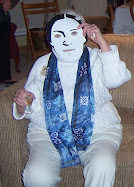









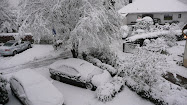






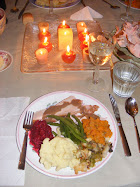



































































2 comments:
The best consideration I know of American culture is to be found in Ernest Becker's THe Denial of Death. All of our malls, plastic snowmen, and animatronics whosits in their constant motion are strategies to detract us from the fact we'll die.
Ooh, that gave me chills. Thanks.
Post a Comment